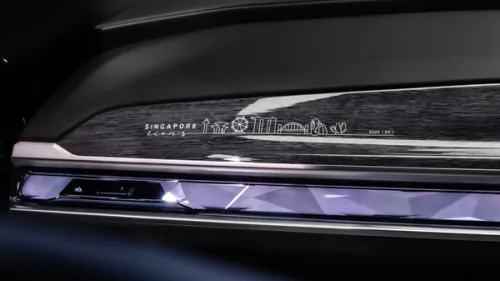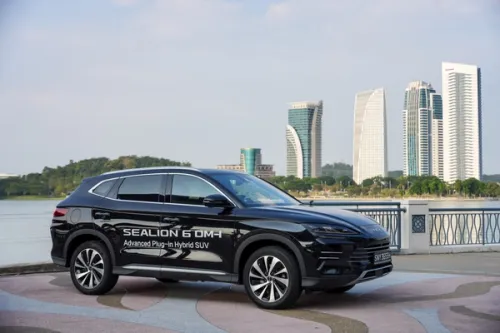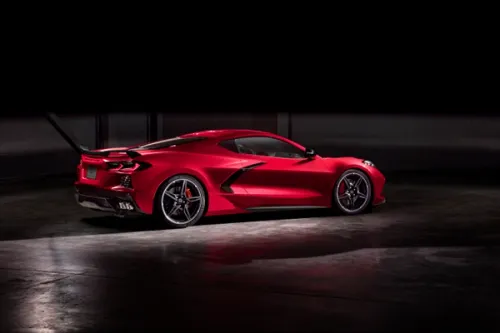From Apprentice to Award Recipient: Interview with Eric Goh, Founder of Motor Edgevantage
We find out what makes one of Singapore's leading workshops tick.

Motor Edgevantage is one of the most familiar names in the workshop business, especially for continental makes. In fact, if one does a straw poll among car owners, Motor Edgevantage often comes up as an independent workshop that feels as professional as an official dealer workshop, or even more so.
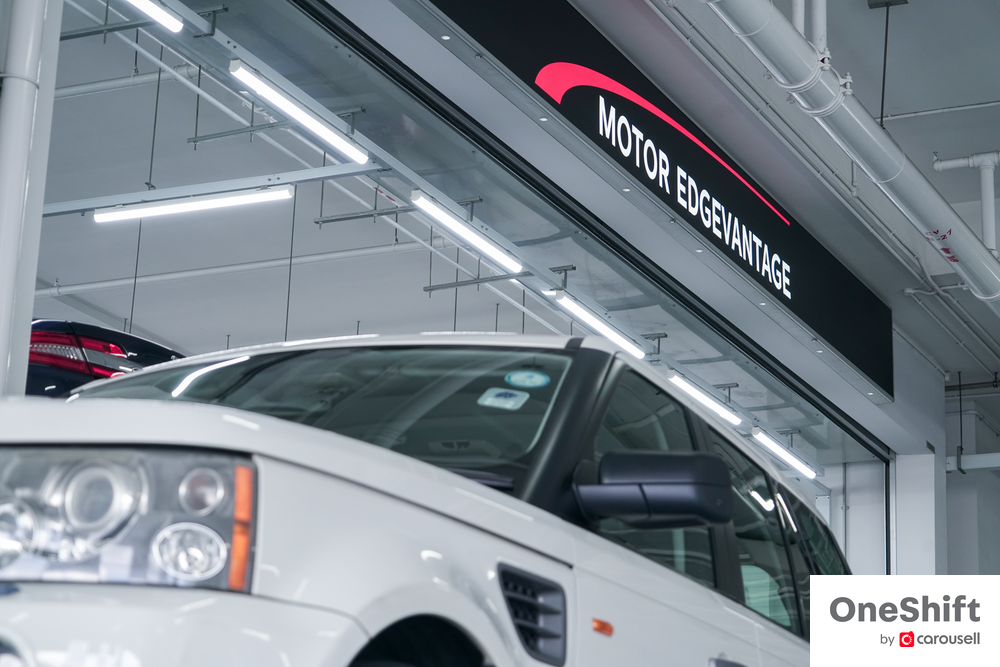
Being a company that takes the ‘high road’ to car maintenance, always pursuing high standards for customers, we were keen to find out what motivates Motor Edgevantage to operate differently from the vast majority of workshops out there, as well as what makes its customers so loyal.
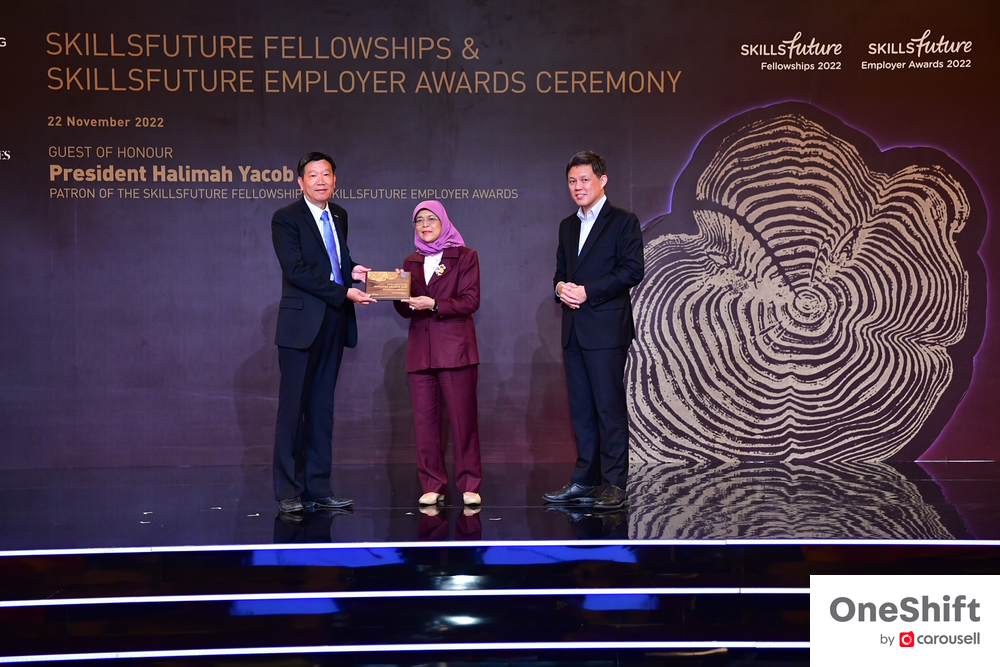
Perhaps a strong hint is Motor Edgevantage receiving the SkillsFuture Employer Award (Silver), which honours organisations that champion employees’ skills development and builds a lifelong learning culture at the workplace. We speak to Eric Goh, founder of Motor Edgevantage, to find out more.
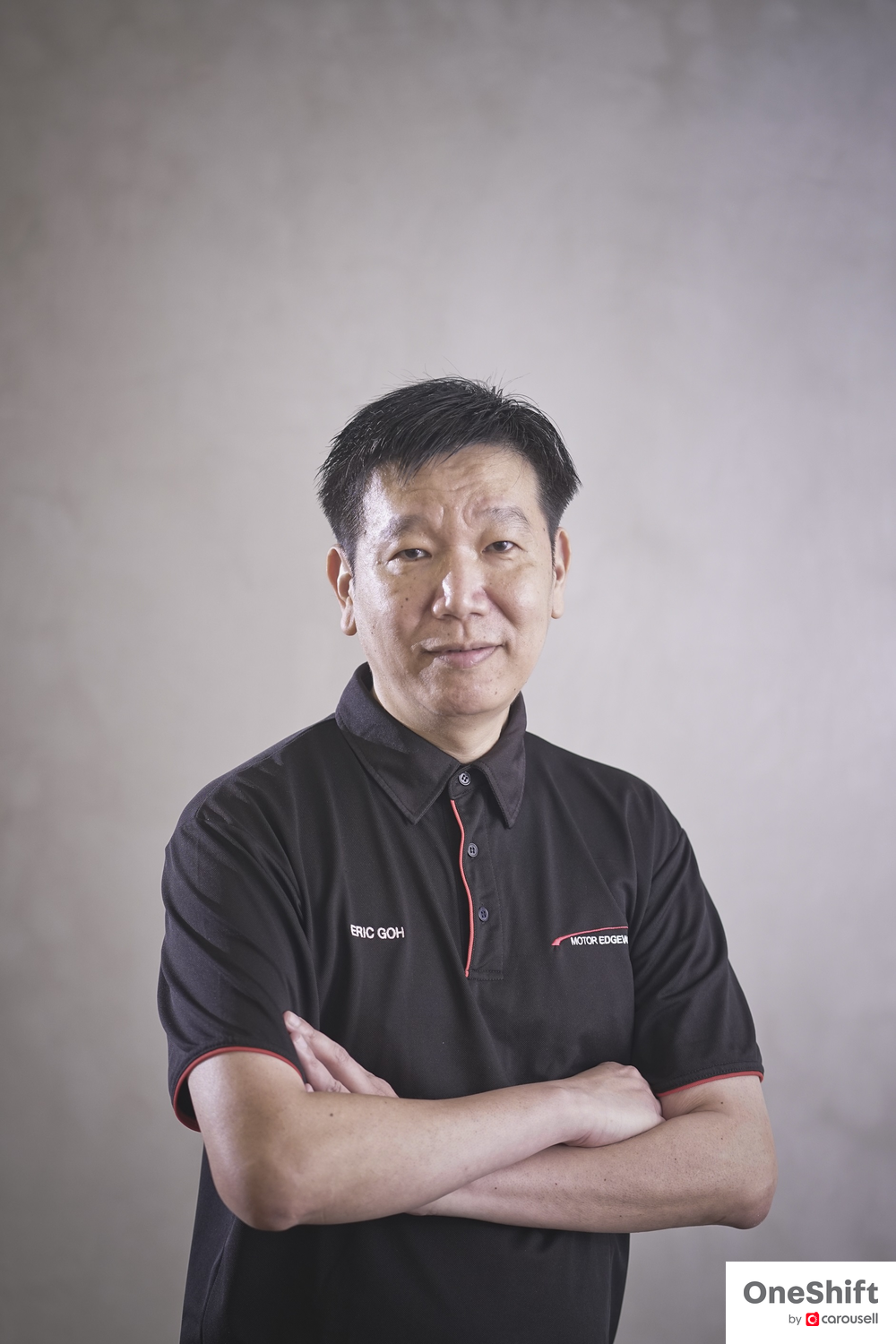
Eric has been in the automotive industry for 25 years and is passionate about shattering the “Grease Monkey” stereotype of car mechanics. First entering the industry as an apprentice mechanic, he rose up the ranks at Performance Motors Limited, Comfort Group and finally Wearnes Automotive where he held the role of Managing Director of the company’s China automotive operations. He started Motor Edgevantage thereafter.
Let’s jump right in!
Motor Edgevantage was awarded the SkillsFuture Employer Award (Silver) by SkillsFuture Singapore in 2022. Congratulations! Motor Edgevantage has focused on upskilling its staff. Do you think blue collar workers should be more appreciated in Singapore?
Blue collar has traditionally been a “disrespectful” term because it was often associated with people who work in a non-office setting using their hands and physical abilities to perform low value work.
However, the truth is that many blue collar jobs such as automotive repair jobs require specialised skills and knowledge and not just physical labour. With technological advancements and digitalisation, you could even say blue collar workers need more technical and technology skills to perform in their jobs compared to the past.
They have an important role to play in society and certainly deserve our respect.
However, it is heartening to see society making good progress in this area. In Singapore, we are no longer seeing a clear distinction between blue or white collar jobs. The frequently used term now is PMET and this is a positive step towards elevating the social standing of people who do physical, hands-on work.
The government is also encouraging everyone to embrace a broader definition of what is a good job, and focus on skills and competencies instead of just paper qualifications. Slowly but surely, we are moving towards greater acceptance and appreciation of blue collar jobs.
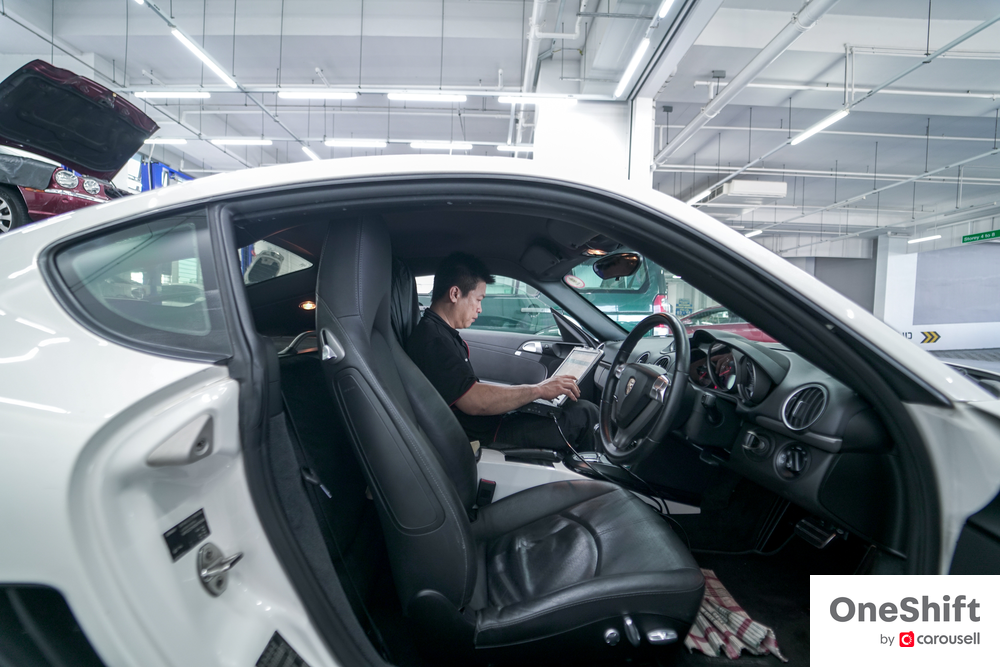
Why do you think mechanics in Singapore do not get the recognition they deserve versus countries like Germany?
Europe, and in particular Germany, has a very strong automotive industry generating close to 5% of Germany’s GDP. Working in the automotive industry is a respectful career choice and there are even vocational universities for mechanics/technicians to upgrade themselves to an automotive engineer. If they so wish, they can even pursue a PHD degree working on high level research.
This leads to a culture where the job is held in high regard and is attractive for youths to pursue as a career.
In our local environment, the job is seen as having very little career progression and done by academically inferior people. In the past, car mechanic trainees who were not good at studies were sent to the Vocational and Industrial Training Board (VITB), before it was restructured as ITE in 1992.
This perception remained for a long time as the focus was on academic excellence for most and that has led to the profession being undervalued when compared with other countries.
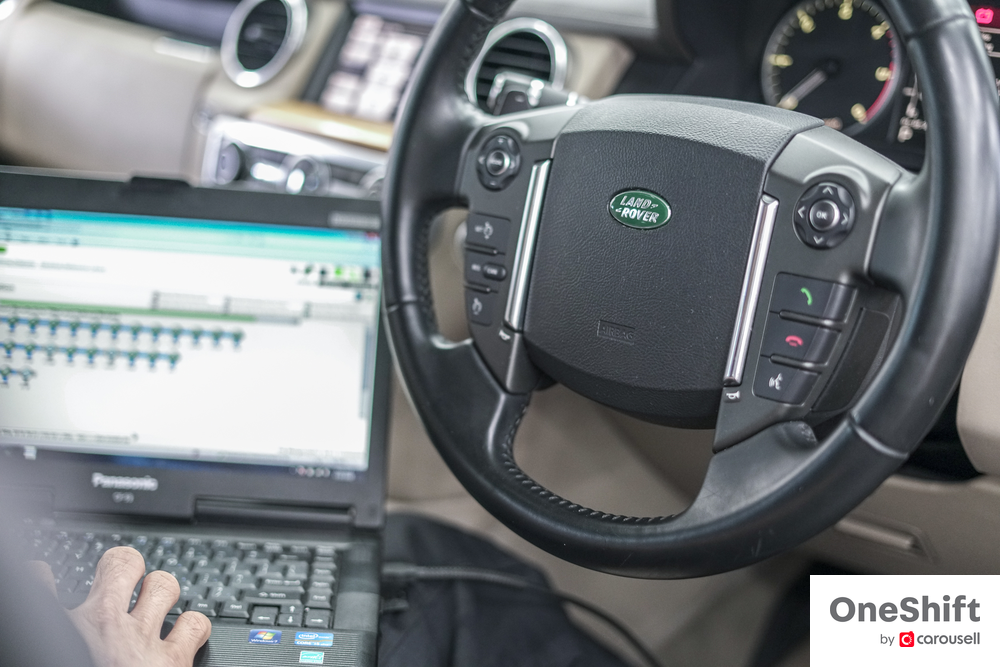
How should we improve the environment in Singapore for educated, skilful young people interested in working in the car workshop business?
This can be a very challenging task as most people would not aspire to be a car mechanic. The push for a car-lite society also means the industry will never be a core economic segment.
However, there are a few things we can do to make it more attractive. Firstly, in our case, we collaborate actively with ITE to offer work-study courses in Automotive Technology/Engineering leading towards national certification in Nitec and a Work-Study Diploma. With this platform, aspiring car mechanics can be assured that there are well-structured courses and support programs to help them acquire the necessary skills to build a sustainable career.
Secondly, investment in automation and pivoting to digitalisation also gives confidence to the young that they will be working in a forward thinking industry who leverages on them being more tech-savvy as compared to older generations.
Thirdly, providing constant mentorship, opportunities for further training (our trainees are sent to Germany and Estonia for skills enhancements at the company’s cost), developing a well-defined career progression plan and paying a competitive salary are also some of the things which the industry should focus on in order to create a more attractive environment for the young.
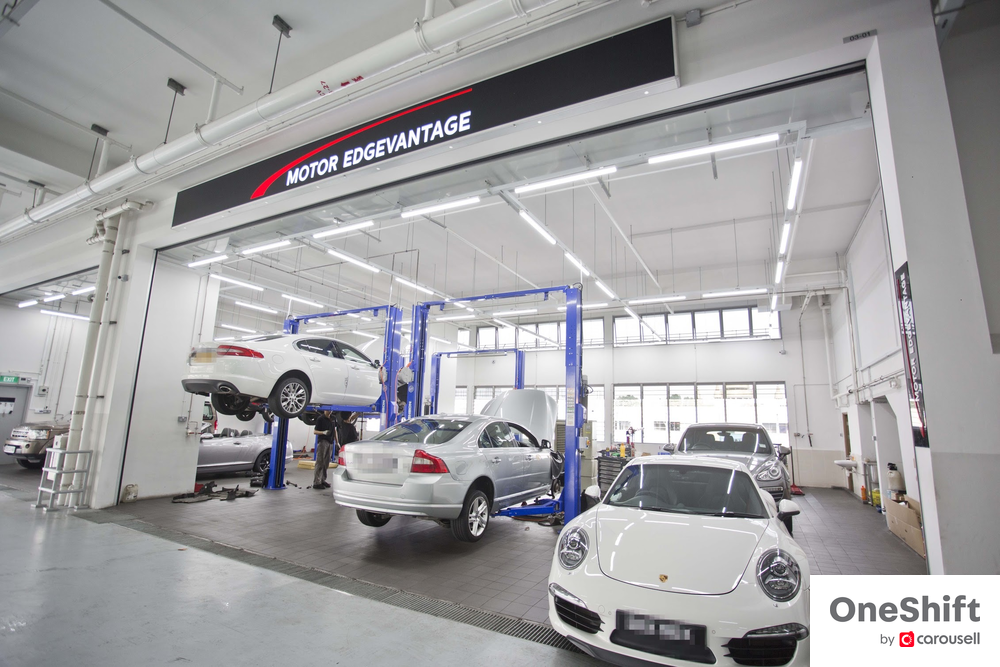
Motor Edgevantage prides itself on a bright and clean workshop space. Why do you think this isn't the basic standard in Singapore workshops?
The majority of independent car workshop owners do not see the intangible values to investing in workshop standards such as proper workshop floor tiles, LED lighting and layout design.
They see this as unnecessary expenditure that doesn’t generate more revenues, but instead adds to operating costs. They do not realise that with proper workshop standards, you create a differentiating factor which allows your staff to work in a safe and comfortable environment, which leads to improved productivity and better staff retention numbers while also instilling customer confidence.
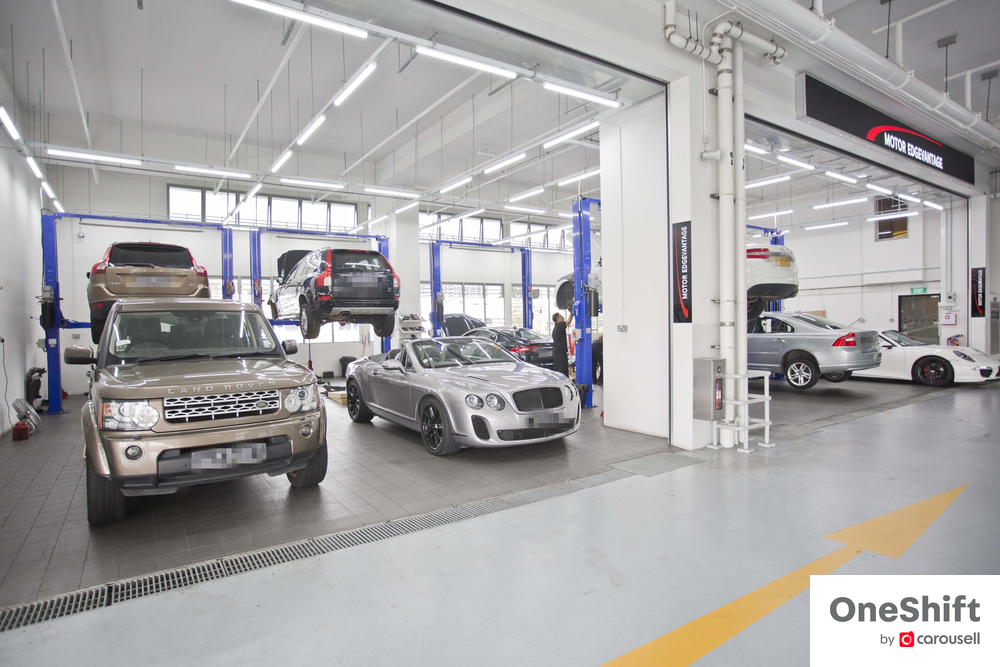
How has car repairs evolved over the years, has it become a lot more complex these days with digitalised systems? Has it made it harder for mechanics for diagnosis and repair?
Yes, car technology has evolved rapidly since the early 1990s with technologies such as built-in GPS, bluetooth connectivity and head-up displays (HUD). Nowadays, you don’t need a key to lock/unlock or start your car as all these functions can be done via your mobile phone.
With the advancement to integrate more electronics and IoT (Internet of Things) to car features, repairing modern cars require new skillsets and this has resulted in most older and conventional mechanics to become “technically obsolete”. They have to be sent for upskilling to remain up to date.
On top of technical competency, we also need to invest in diagnostic testers to facilitate fault tracing, so operating a workshop is no longer a low-cost setup. That’s why I always say we work in the knowledge industry instead of the car repairing industry.
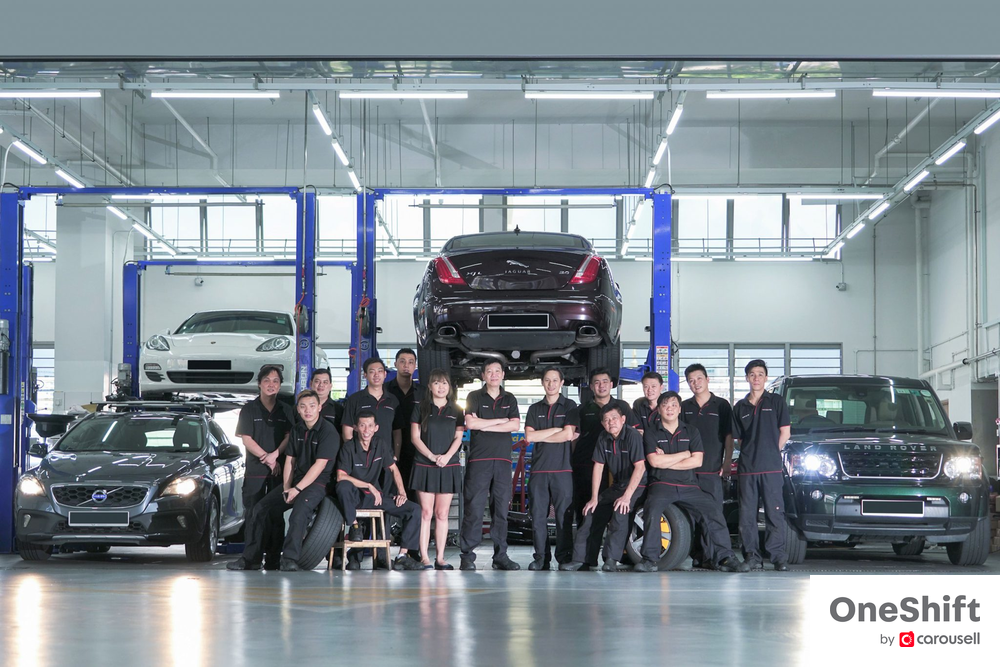
Have you considered entering the classic car repair and restoration business? Why or why not?
Yes, and in fact I also have a name for it – Motor Edgevintage that specialises in classic car restoration. What’s holding it back is a lack of skilled mechanics that are competent to work on older generation engines.
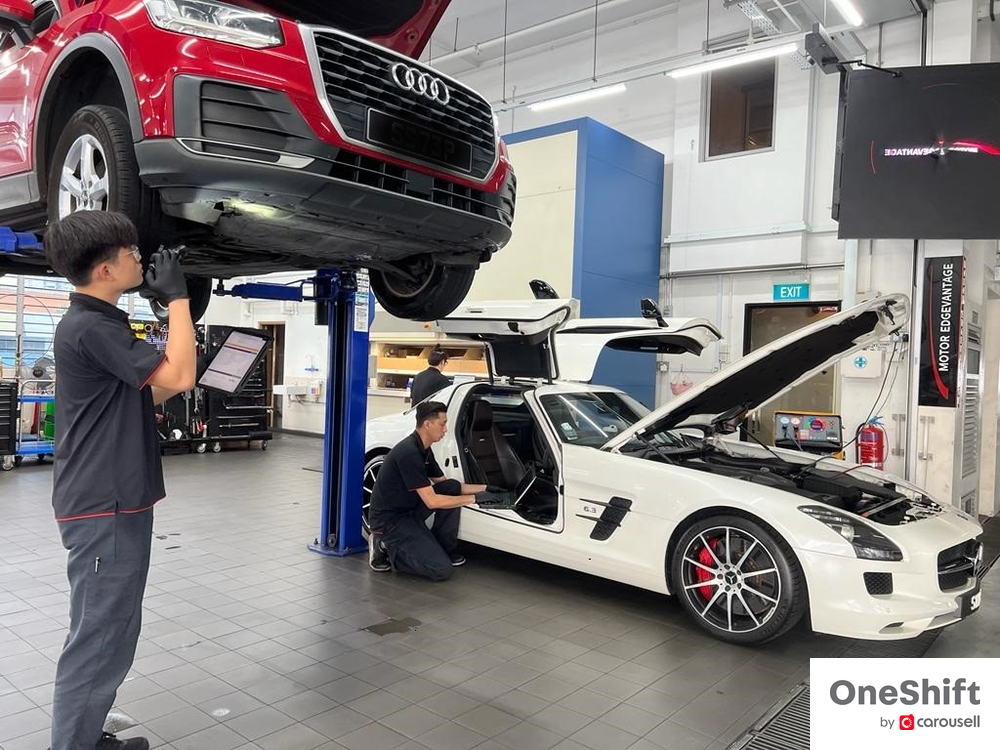
What is your favourite car model?
Range Rover Sport.
Are Japanese cars generally more reliable than European ones?
This can be subjective even though the general perception is that Japanese cars are generally more reliable than European cars. One of the main reasons can be attributed to their production processes to outcompete and outperform far more established European brands in the early days.
Having said that, most European, in particular German brands have caught up to reengineer their production processes with far superior technologically advanced features to make driving easier and more fun. So if you are looking for speed, styling, handling and luxury, it would have to be European!
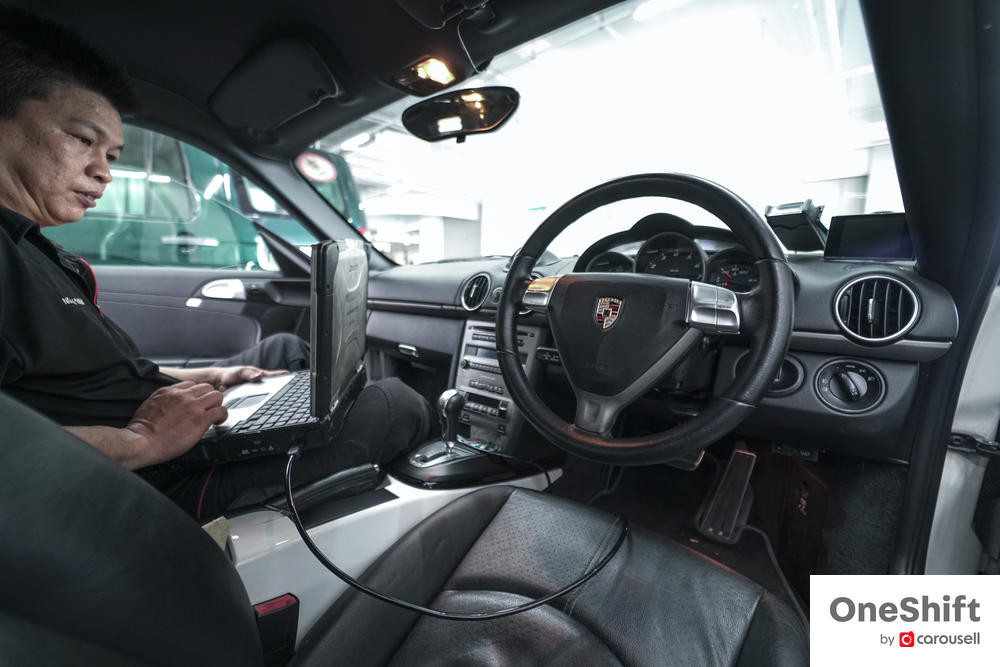
What are your thoughts on China-made vehicles?
China-made vehicles are still suffering from having a bad reputation due to poor design and quality control because most of the domestic automakers are still focusing on quantity rather than quality to meet their local demands.
However, there are significant improvements over the last decade through technology transfers via acquisition such as Geely acquiring Volvo and SAIC acquiring MG.
In addition, China's homegrown EV automakers are benefiting from generous subsidies, tax breaks, procurement contracts and other policy incentives to offer lower-cost offerings which enables quicker transition from petrol powered vehicles.
As such, I think China EV brands have a good chance to succeed as they do not have any legacy baggage to carry versus the conventional automakers. With the huge volumes which they are producing for their own domestic market, they will likely dominate the EV segment globally.
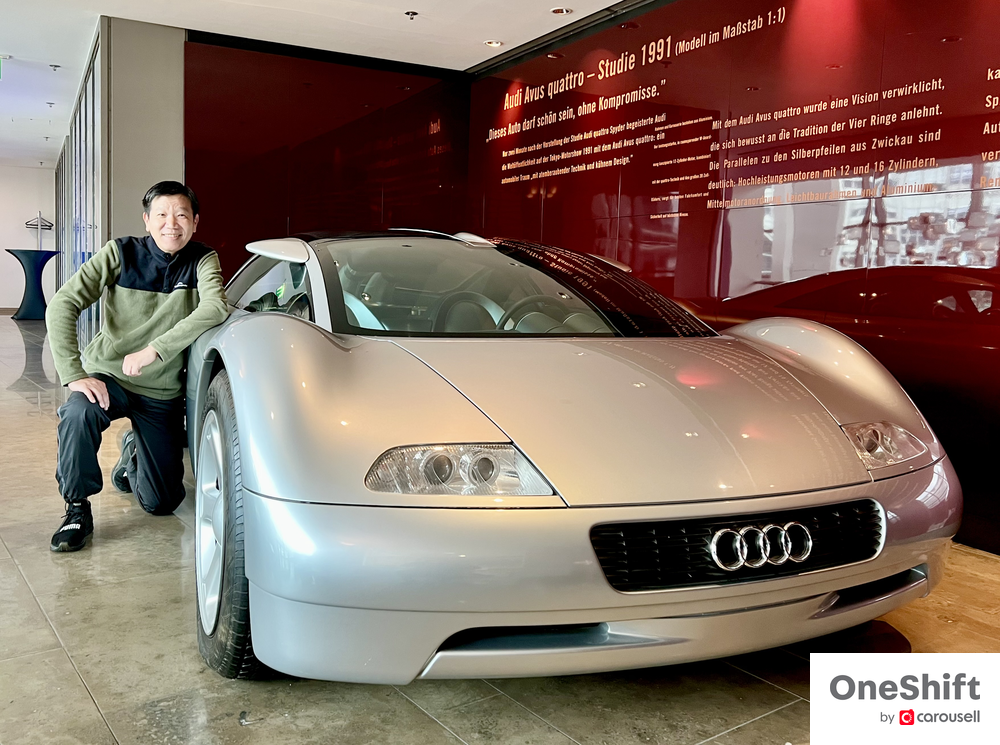
How has the transition to EVs affected your business? How have you adapted apart from qualifying your staff and upgrading your hardware?
Although the EV segment is growing rapidly by more than 6-fold, with 7,000+ EVs on the road as of Feb 2023, the number is still a small fraction of the total passenger car population of more than 650,000 cars which is slightly above 1% market share.
There is no immediate risk from EVs in the short term to our business, but in the longer term we cannot ignore EVs and it is still not too late for those in the industry to develop competency to transition to EV repair.
Other than upskilling our technicians, we plan ahead to secure accessibility to Tesla by working with a reputable German tuning company that specialises in aftermarket product offerings to refine Tesla.
In doing so, we get exposure to Tesla cars, such as to retrofit digital instrument clusters and to do suspension upgrades. Otherwise, there is no service possibility because almost all EVs are still under warranty coverage.
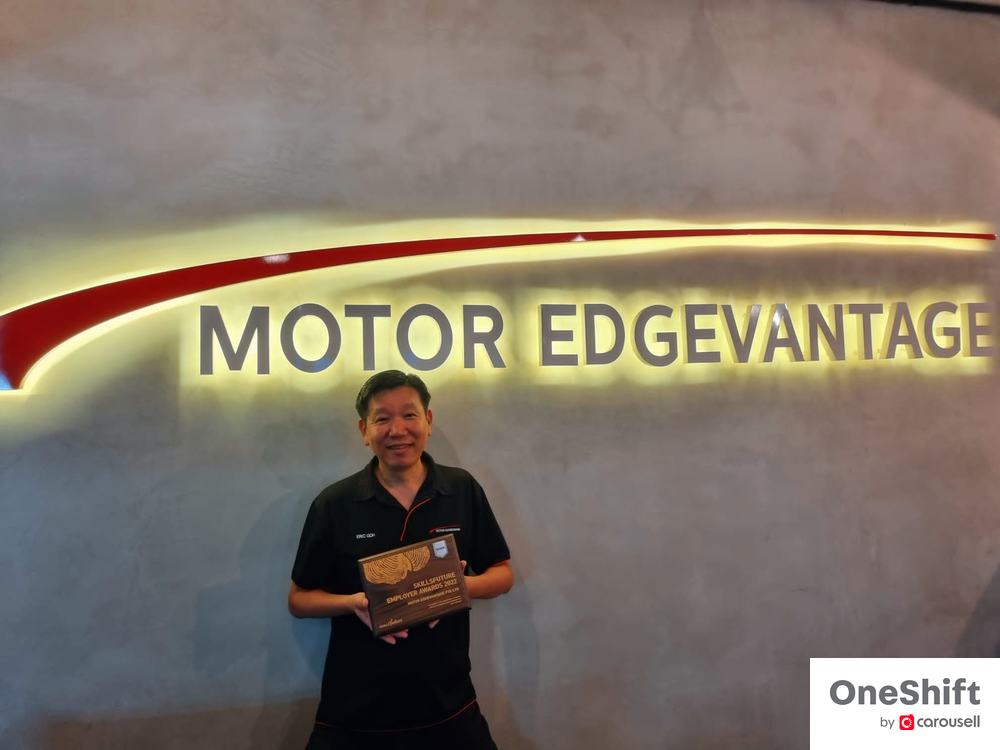
Any words of wisdom for aspiring car mechanics?
The industry is constantly evolving. The days of working with a clipboard and paper checklist will soon disappear. iPads and software management tools will be the future. EV’s will continue to grow in popularity. Autonomous driving may become a reality.
This will open up many possibilities for the aspiring car mechanic. They will have the chance to be part of this new, exciting journey, forging their own path. Embrace the challenge and don’t be afraid to set high ambitions and think big to grow big!
To finish off, I will borrow a quote from Sean Hampton, a well-known American actor: “A dream without ambition is like a car without fuel…you are not going anywhere.”
Photos by Motor Edgevantage
---
Do you know that selling your car directly to another car owner is the best way to get the highest price for your car? Get more for your car when you list your car for sale on Carousell today.


Get the Best Price for your used car
from 500+ dealers in 24 hours

- Convenient and Hassle-Free
- Consumer Protection
Transparent Process
With No Obligation

